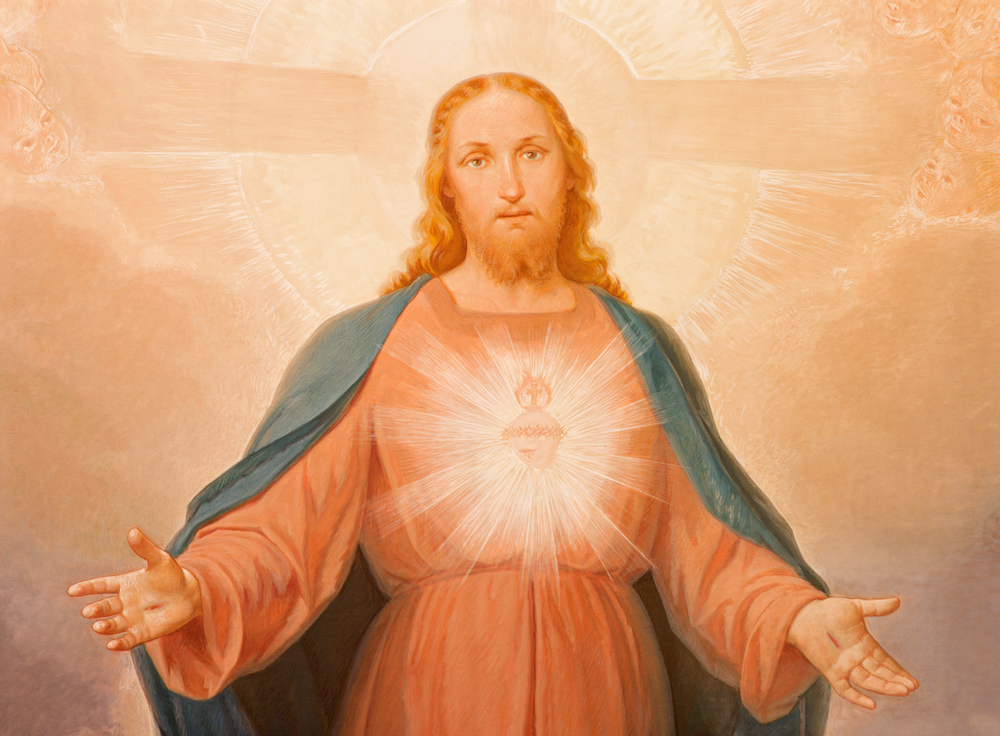Ancient text excluded from the Bible reveals secret ‘Jesus’ teachings that would change his message

There’s something about what’s left unsaid that lingers. A silence between the lines. A truth whispered, but never shouted. For centuries, billions have followed the words of Jesus recorded in the Bible—but what if there were other words? Words that didn’t make the final cut. Not because they were false, but because they were… inconvenient. Buried in the desert sands of Egypt and rediscovered nearly two thousand years later, the Gospel of Thomas is one such text. It offers a radically different voice—still Jesus, but one less focused on belief and more on awareness. Less about worship, more about wisdom.
This isn’t about rewriting history. It’s about expanding the conversation. Because when we look at what was excluded, we start to see a bigger picture—one that doesn’t just challenge old ideas but speaks directly to the questions we’re asking today. Who am I, really? Where do I find truth? Is the divine something I must reach for… or something I already carry inside? The answers might not be where we’ve always looked. Sometimes, the forgotten pages hold the clearest mirrors. And sometimes, the most revolutionary thing Jesus may have said was this: “The kingdom is within you.”
A Gospel Left Out—What Is the Gospel of Thomas?
Imagine discovering a version of Jesus’ words—ancient, cryptic, and radically different—that was buried for centuries, not in earth, but in silence. The Gospel of Thomas is one such text. It isn’t a story like the familiar Gospels of Matthew, Mark, Luke, and John. Instead, it reads like a scroll of secret teachings—114 sayings attributed to Jesus, some echoing familiar wisdom, others whispering messages that challenge mainstream Christian doctrine.
Why was this gospel not included in the Bible? Scholars point to three main reasons. First, the Gospel of Thomas lacks a credible apostolic connection. While it’s attributed to “Didymos Judas Thomas,” the real Apostle Thomas, it’s widely believed the text was written in the early second century—decades after the original apostles had died. This makes its authorship historically implausible.
Second, the content of Thomas diverges significantly from orthodox Christian beliefs, especially in its strong resonance with Gnosticism—a spiritual movement that emphasizes personal knowledge and inner enlightenment over faith in institutional teachings or external salvation. The early church, wary of these views, saw them as heretical and destabilizing to the emerging Christian identity.
Third, early church leaders had already settled on four Gospels as the official narrative of Jesus’ life. Adding a fifth—especially one so different in tone and theology—would have disrupted the delicate unity being forged among early Christian communities.
Bart Ehrman, a respected scholar of early Christianity, notes that although the Gospel of Thomas was probably written in the second century, some of its sayings may trace back to Jesus himself. This blend of historical intrigue and doctrinal tension keeps the Gospel of Thomas on the fringes of both theology and history—an echo of a Jesus who might have been, whispering a message many never got to hear.

A Different Jesus—Teachings That Challenge the Familiar
The Gospel of Thomas paints a picture of Jesus not as a savior through death and resurrection, but as a mystic teacher, urging his followers to look within rather than upward. It’s not about worshiping a distant divinity—it’s about awakening to the divine already present in each of us.
In this gospel, Jesus doesn’t speak of sin and repentance as central themes. Instead, the enemy is ignorance—our failure to recognize our true nature and connection to the divine. “Recognize what is in your sight,” Jesus says, “and that which is hidden from you will become plain to you. For there is nothing hidden which will not become manifest.” This isn’t about earning salvation through faith or ritual—it’s about becoming aware, conscious, fully awake.
One of the most provocative sayings is about the Kingdom of God. Traditional Christianity often speaks of the Kingdom as something to come, a future event, or a heavenly reward. But the Jesus of Thomas flips that narrative:
“If those who lead you say to you, ‘See, the kingdom is in the sky,’ then the birds of the sky will precede you… Rather, the kingdom is inside of you, and it is outside of you.”
This teaching reframes the Kingdom not as a destination, but as a present reality—one that becomes visible only when we shift our perception inward. It aligns with modern ideas of mindfulness and inner transformation more than with institutional religion.
Another striking parable compares seekers of truth to a fisherman who discards small fish in favor of one large, valuable catch. The message: most of what we chase in life—titles, wealth, surface-level knowledge—is insignificant next to the deep truth of who we really are. These sayings aren’t attacks on traditional scripture, but they redirect the lens. The Gospel of Thomas doesn’t deny Jesus’ role—it reinterprets it. He becomes less a gatekeeper of salvation and more a guide, leading us not to an altar, but to an inner awakening.

Why the Church Rejected It—Control, Power, and Inner Liberation
The teachings in the Gospel of Thomas weren’t just different—they were disruptive. In a time when the early Church was solidifying its structure, defining doctrine, and establishing authority, the Gospel of Thomas proposed a radically decentralized view of spirituality. It undermined the idea that access to the divine required priests, rituals, or an official church hierarchy. Instead, it pointed inward. “The Kingdom is inside of you and outside of you,” it says—not something administered from a pulpit, but something discovered through personal insight. This directly challenged the Church’s developing narrative that salvation came through Christ’s death, resurrection, and adherence to the sacraments—a narrative that, by design or necessity, required a gatekeeper.
Institutional religion, especially in its formative years, needed cohesion. It needed shared beliefs, canonical texts, and leaders to interpret and enforce those beliefs. A gospel suggesting that divine truth could be accessed without intermediaries threatened that structure. Gnostic ideas like those found in Thomas leaned toward mysticism and individual revelation, which were harder to regulate, easier to misinterpret, and fundamentally incompatible with a unified theology. The Gospel of Thomas presented a Jesus who was not a savior to be worshiped, but a guide inviting others to wake up—to know themselves as divine. That kind of spiritual empowerment could decentralize the entire religious experience, making the individual, not the institution, the central player in salvation.
From the Church’s perspective, including such a text in the canon would not only confuse the faithful but also risk weakening the very authority the Church was striving to build. Over time, this authority became deeply entwined with political power, wealth, and influence. Excluding texts like Thomas helped preserve a structure where spiritual guidance flowed in one direction—from clergy to congregation. Yet, if we read between the lines, the omission of this gospel reveals a deeper human pattern: systems built to control often suppress anything that gives people power over their own awakening. And that’s what Thomas offers—not heresy, but a call to inner liberation.

A Message for Now—Why Thomas Still Speaks Today
In an age where more people are questioning institutional religion and seeking personal spiritual experiences, the Gospel of Thomas feels less like an ancient anomaly and more like a timely rediscovery. Its core message—that truth is within you, that enlightenment comes from recognizing what is already present—mirrors many modern movements centered on mindfulness, self-awareness, and inner transformation. For a generation that often feels disillusioned with rigid dogma, the idea that spiritual awakening doesn’t require a mediator or building but a deeper look inward is both liberating and familiar. The Gospel’s emphasis on direct experience over inherited belief resonates with those who see spirituality as a journey, not a set of rules.
This isn’t just a philosophical curiosity—it’s part of a broader cultural shift. From therapy to meditation, from deconstructing faith traditions to embracing holistic healing, there’s a collective hunger for meaning that goes beyond rituals and returns to essence. The sayings in the Gospel of Thomas don’t offer commands or doctrines; they pose riddles, invite reflection, and open space for the seeker to interpret. And in a world overflowing with noise, that kind of quiet, inner guidance speaks louder than ever. It doesn’t reject Jesus, but reframes him—not as a distant savior, but as a mirror held up to each of us, reflecting our potential to know the divine within ourselves.
What’s powerful is how this gospel allows for coexistence. It doesn’t have to replace the canonical texts to be valuable; it can sit alongside them as a different lens through which to see the same light. For many, it doesn’t matter whether the Apostle Thomas actually wrote it or whether it was officially endorsed centuries ago—what matters is the echo it creates in the present. It affirms something we’ve always sensed: that the most sacred truths are not hidden in the clouds or locked in temples, but whispered in the stillness of our own soul.

The Hidden Kingdom—A Call to Look Within
What if the most profound truths were never hidden from us, only buried beneath noise—beneath fear, distraction, and the stories we were told about where to find meaning? The Gospel of Thomas doesn’t demand belief in a new religion; it invites a return to something ancient within ourselves: awareness. Not the kind that comes from books or sermons alone, but the kind that dawns in moments of stillness, when we stop chasing answers outside and begin asking the deeper questions inside. This text, long cast aside, doesn’t whisper rebellion—it whispers remembrance. A reminder that the kingdom isn’t coming—it’s already here. Not later. Now. Not somewhere else. Within you.
We live in a time where people are desperately searching—for purpose, for peace, for connection. And perhaps the greatest deception isn’t that these things are hard to find, but that we were convinced they existed somewhere other than where we already are. The Jesus of Thomas isn’t offering escape—he’s offering awakening. He isn’t pointing to a throne in the sky; he’s pointing to the mirror, to the breath, to the present moment. What would change if we truly believed that the divine spark lives in us, not just in scripture or sanctuary, but in silence, in honesty, in courage?
Maybe the text was excluded because its truths were too expansive for the time—but we’re not living in that time anymore. We’re here. Now. And this moment, more than ever, needs people who are willing to see differently. Not just to believe, but to become. To live not from fear, but from freedom. Not to wait for a kingdom to come, but to build one from the inside out. If there’s anything the Gospel of Thomas reminds us, it’s that sacred truth doesn’t ask for permission to be known—it only asks that we be ready to see.
Loading...

